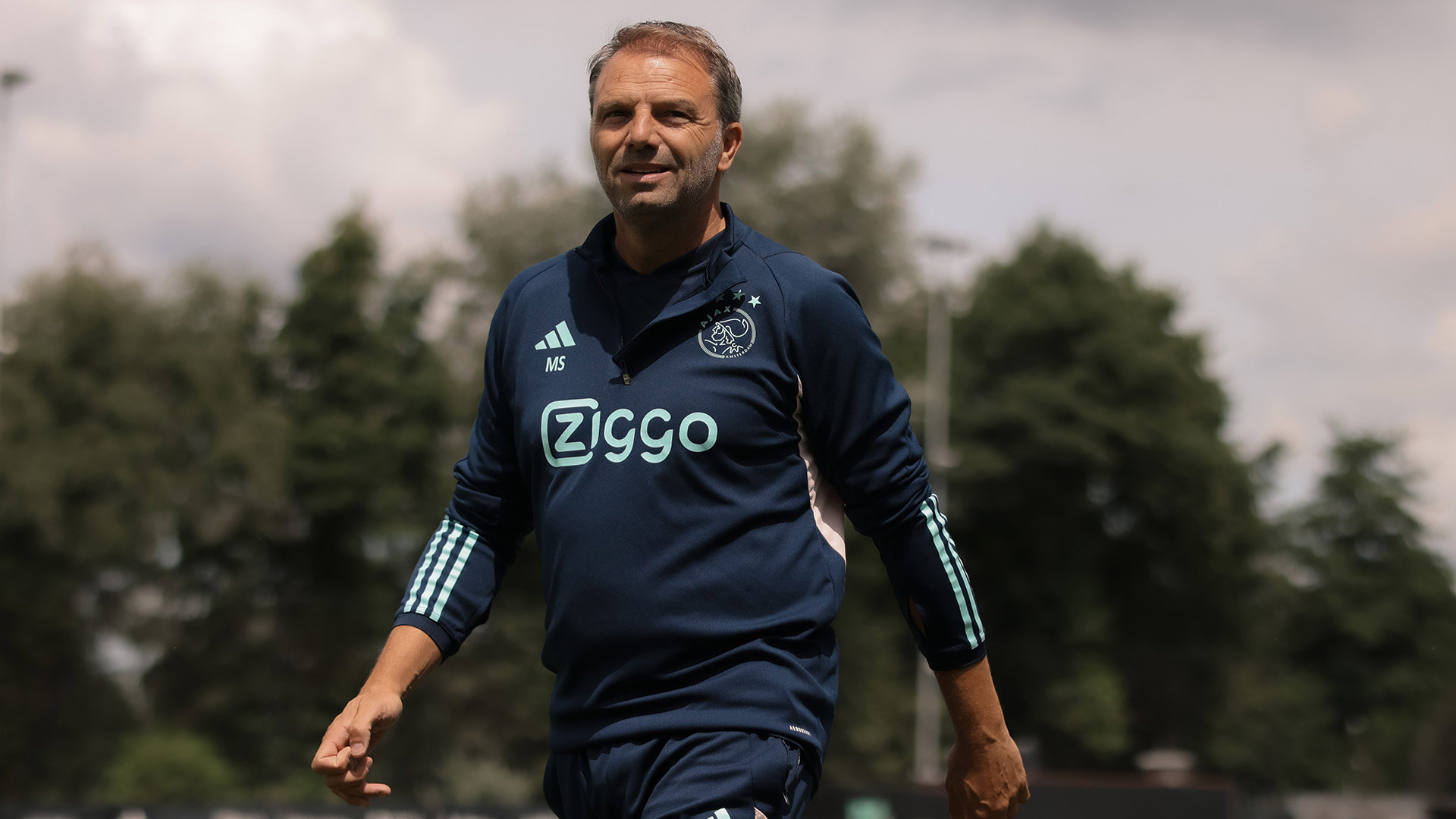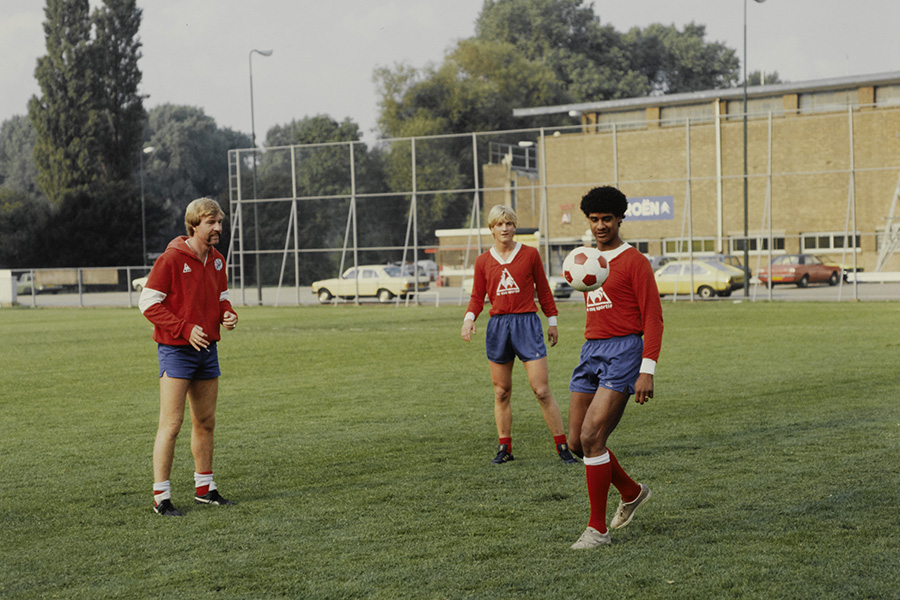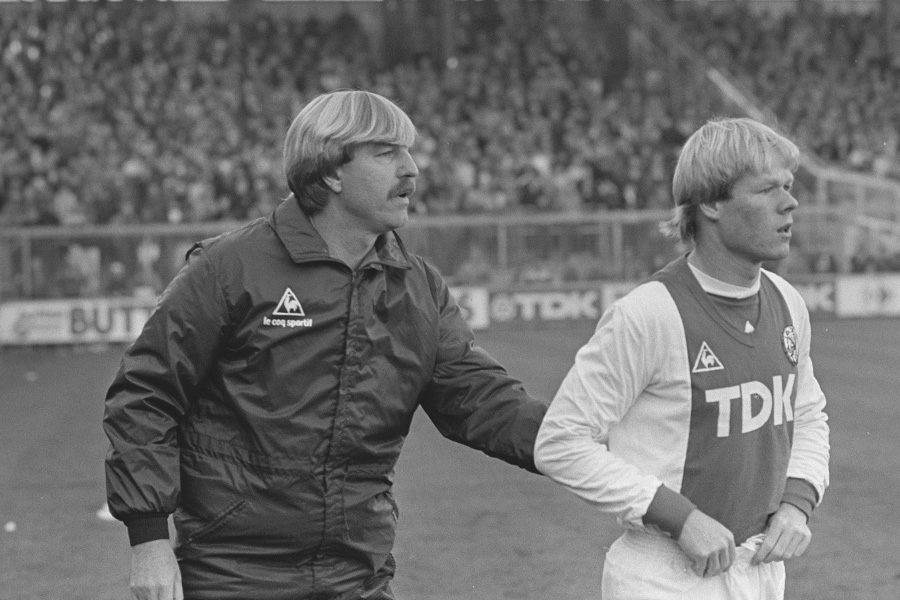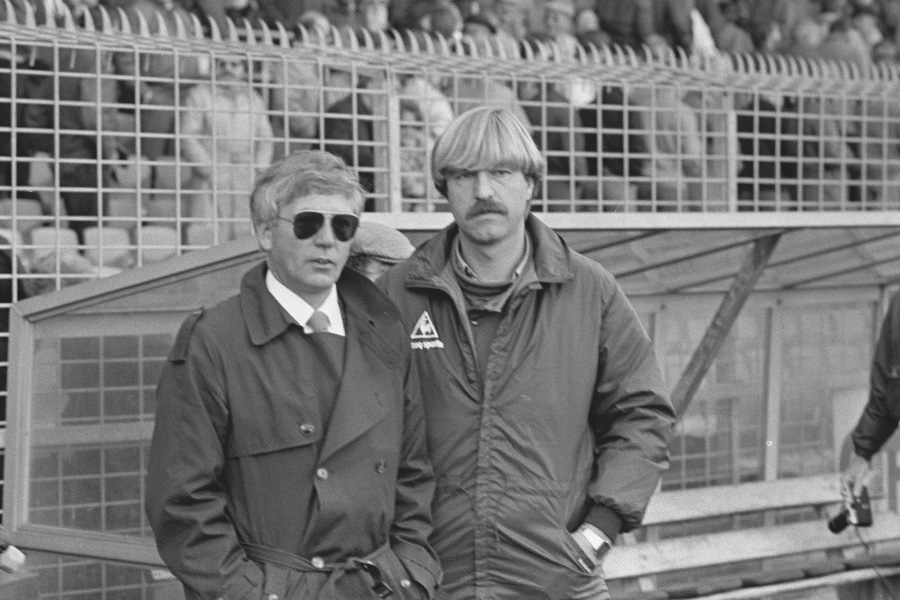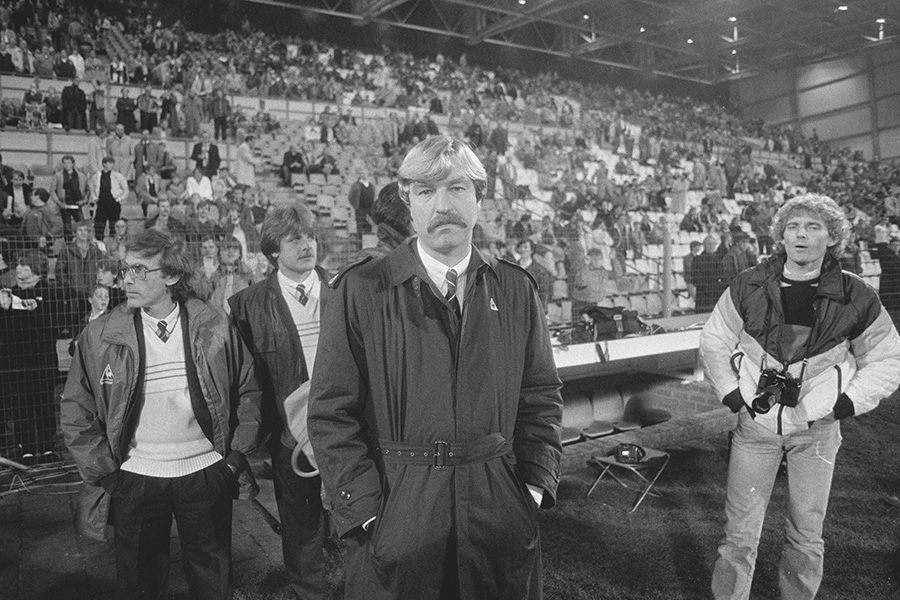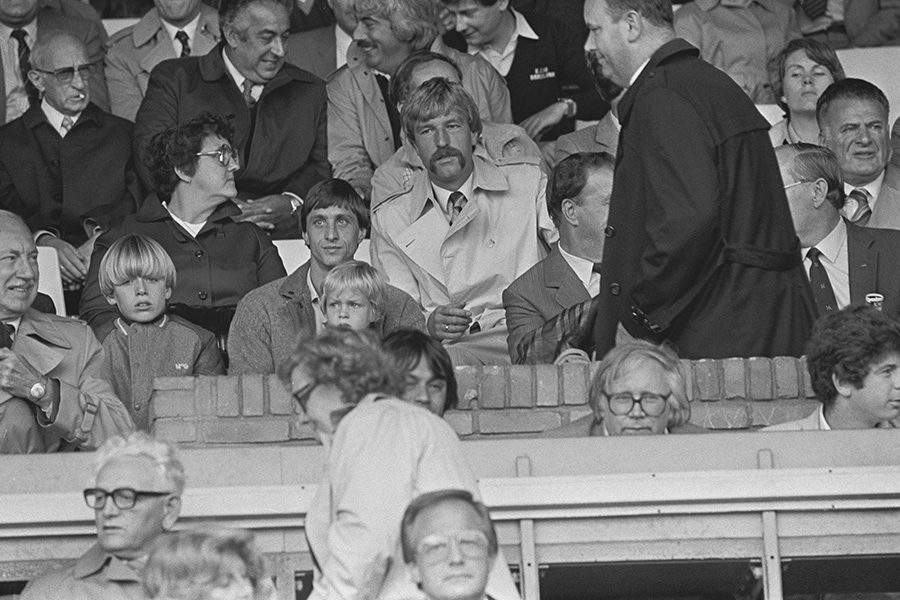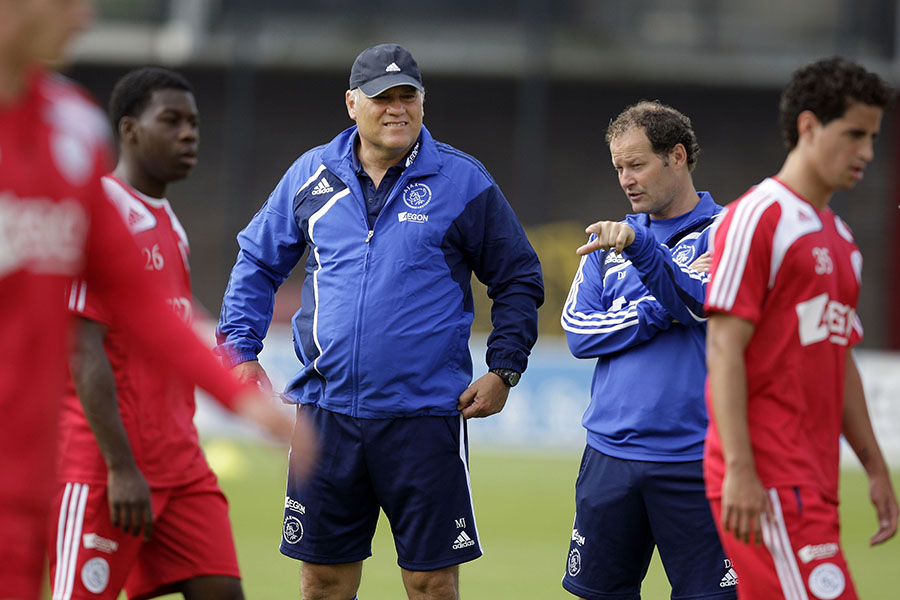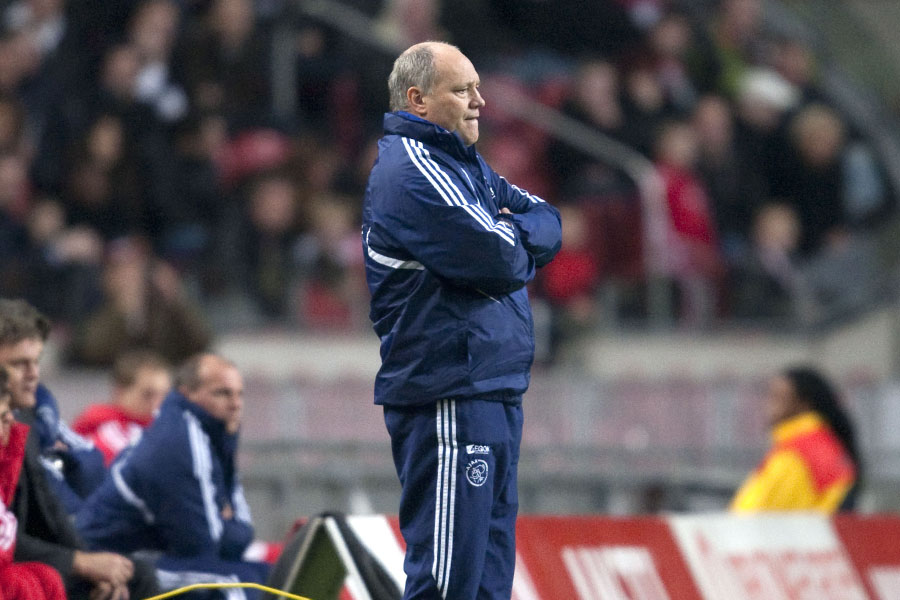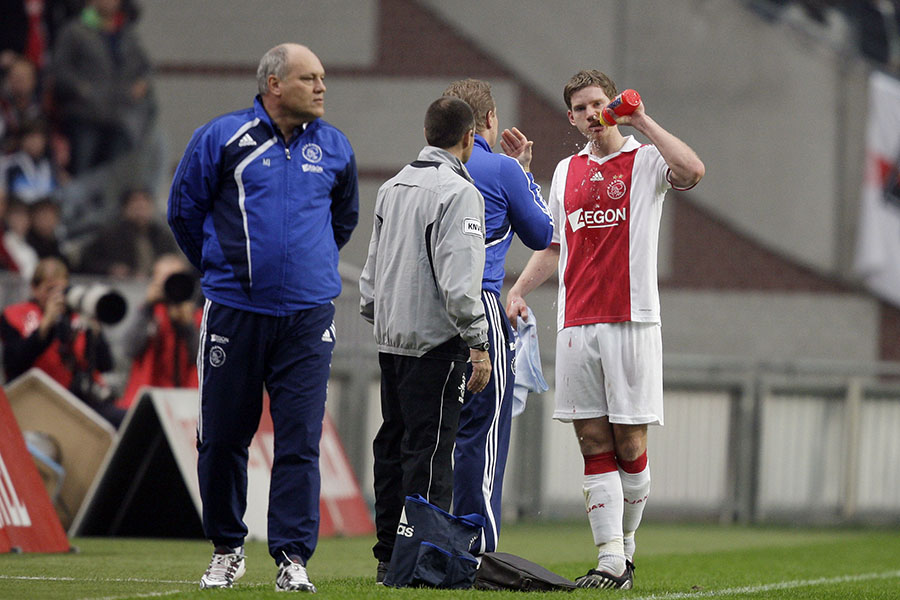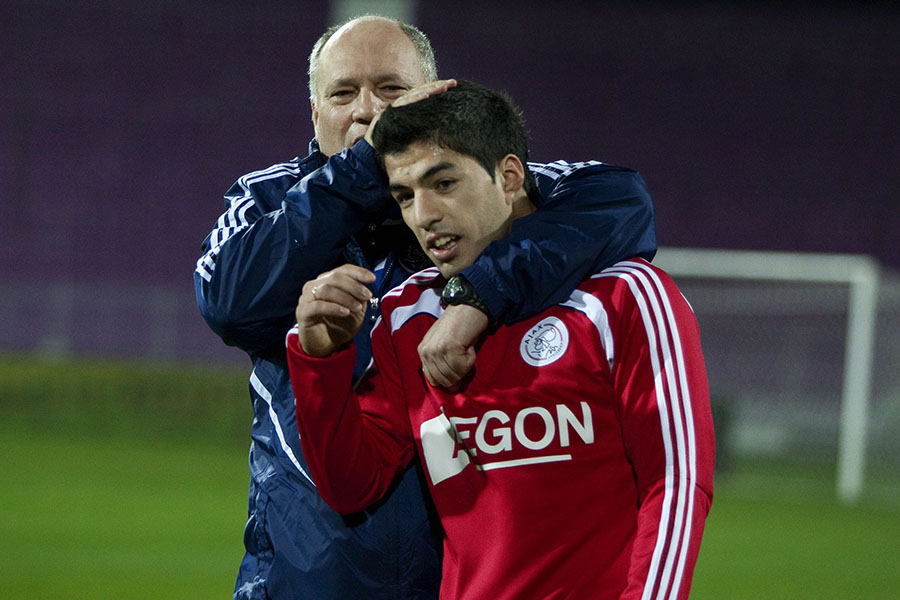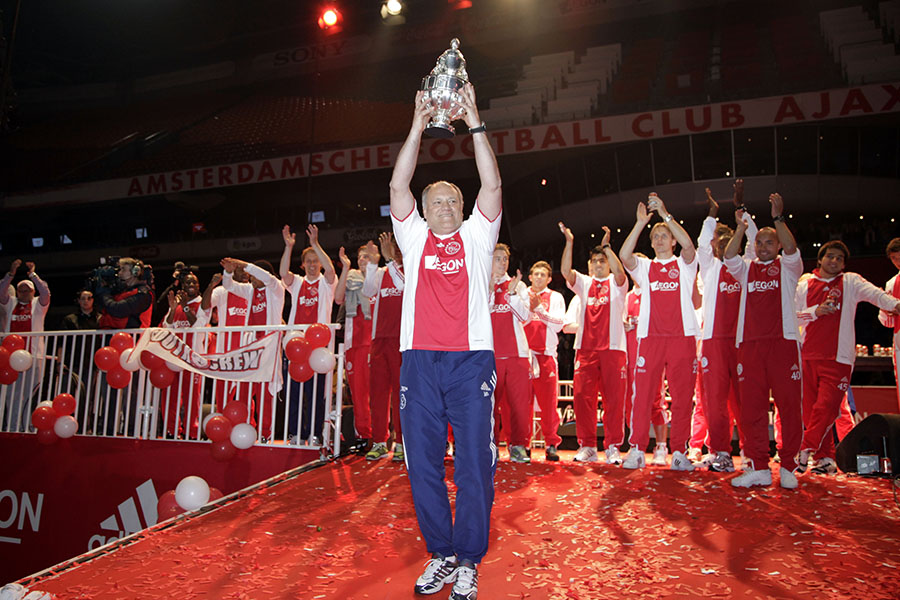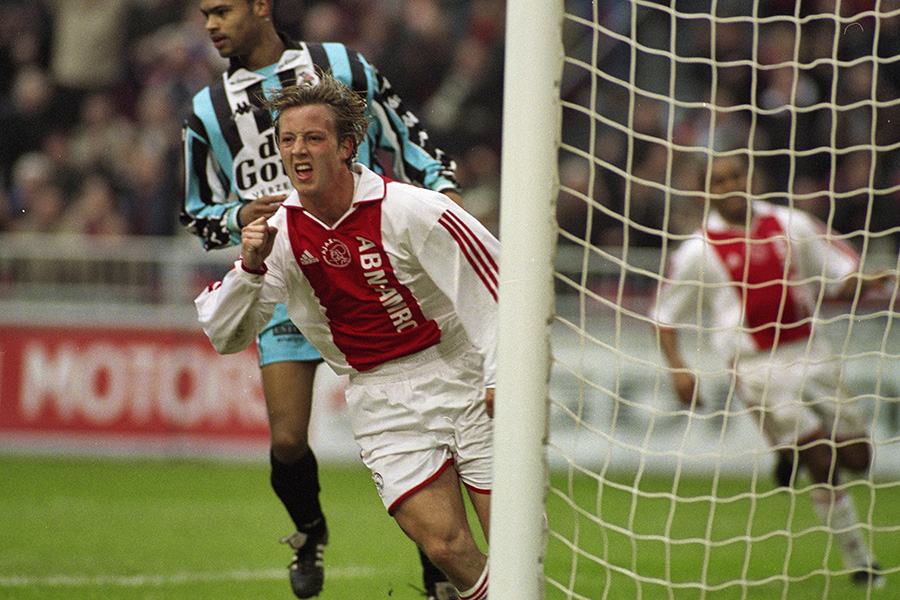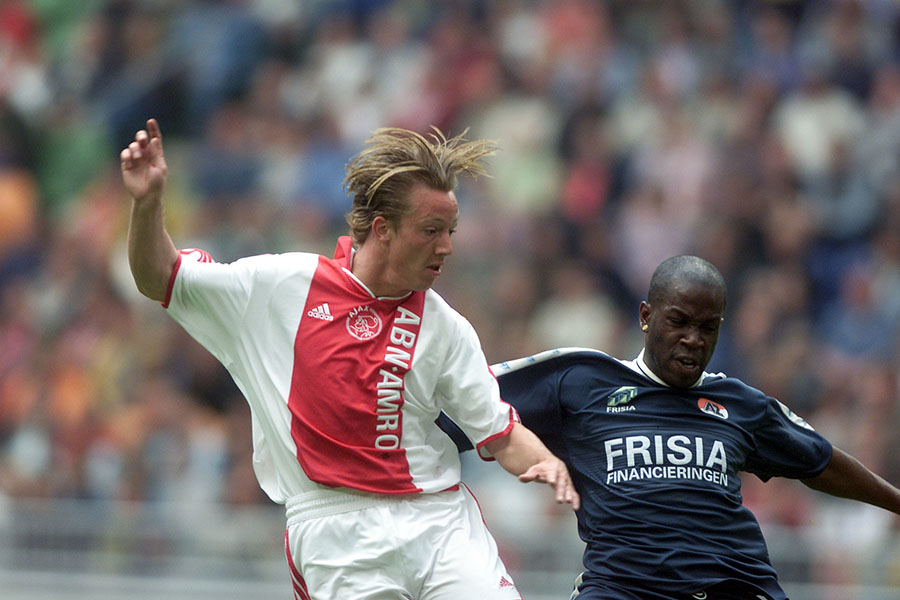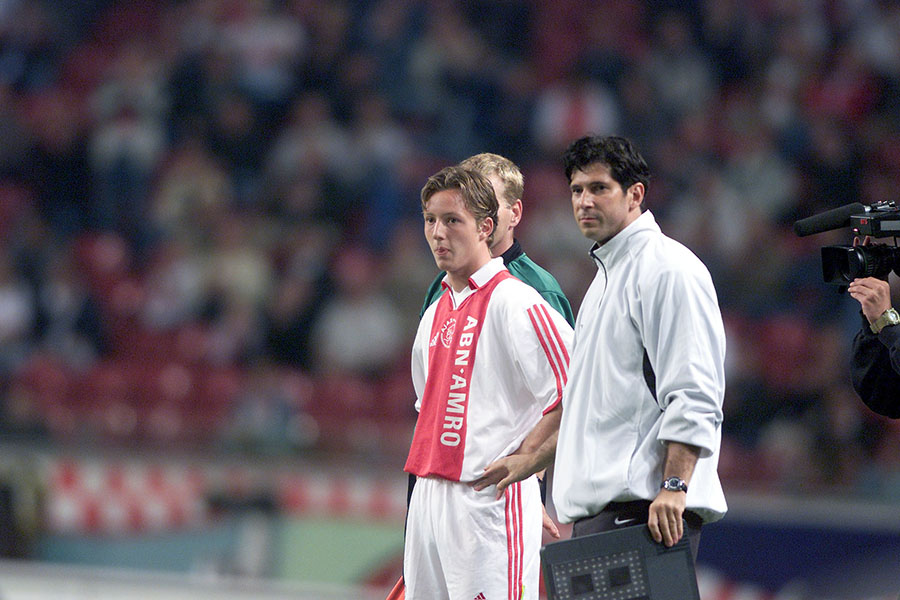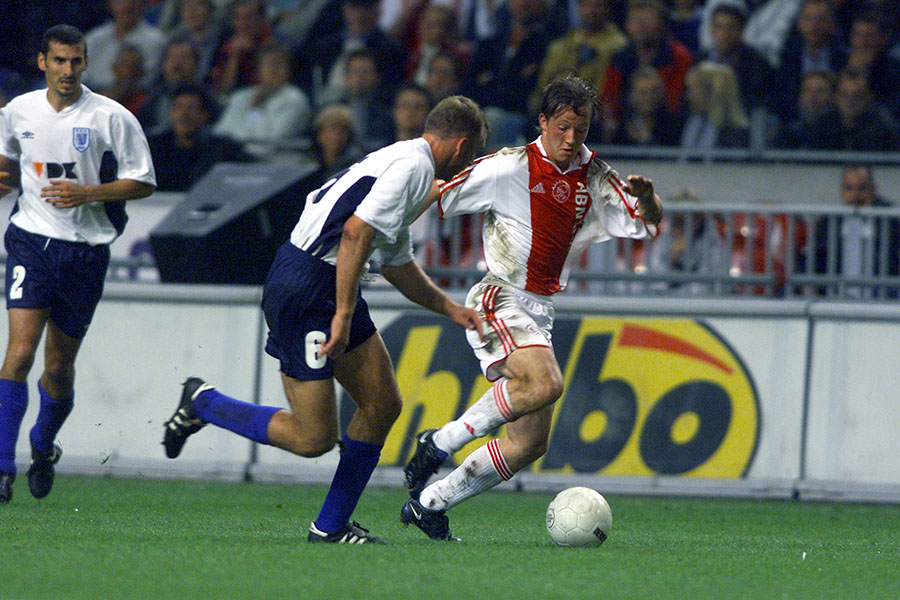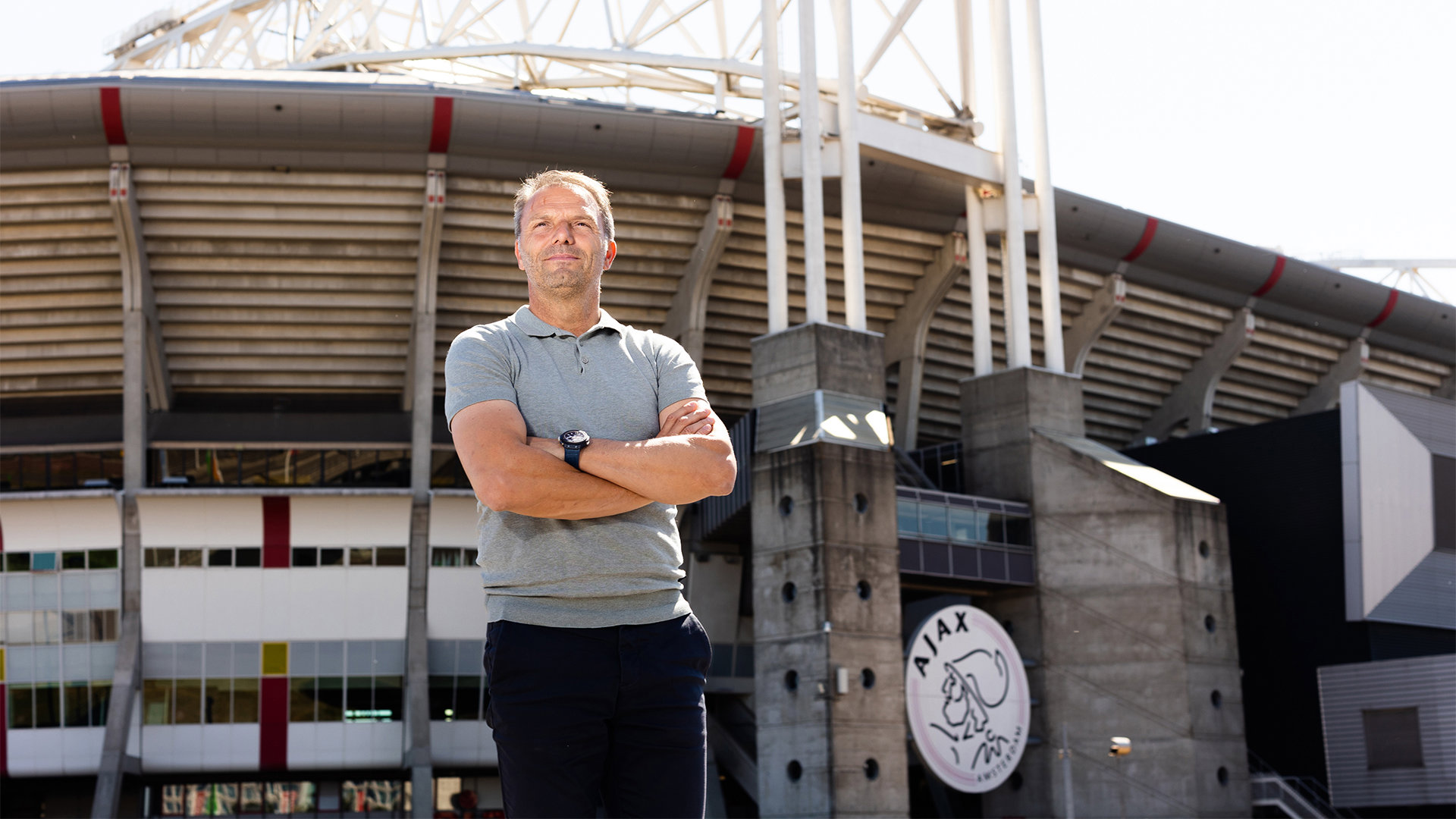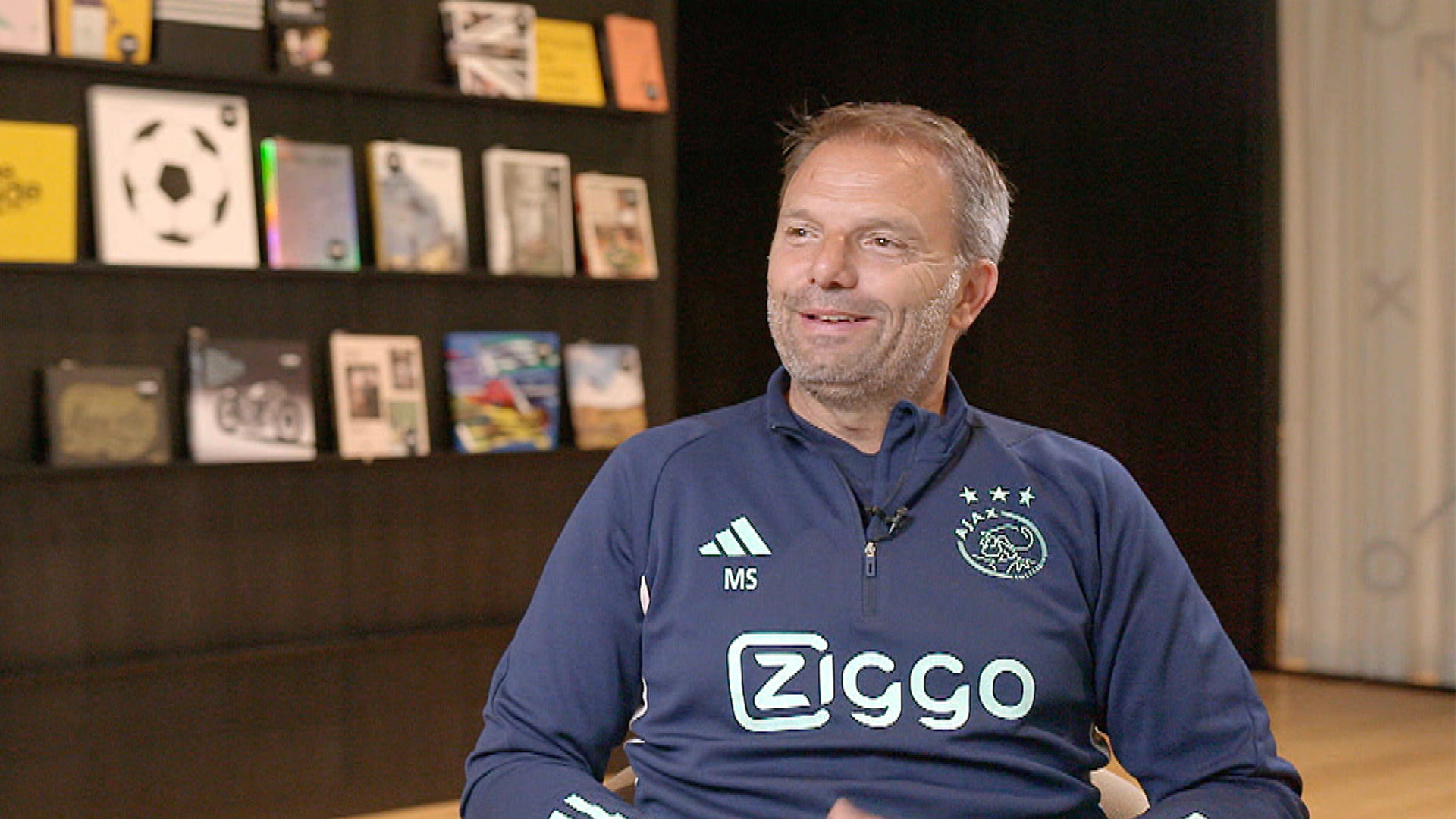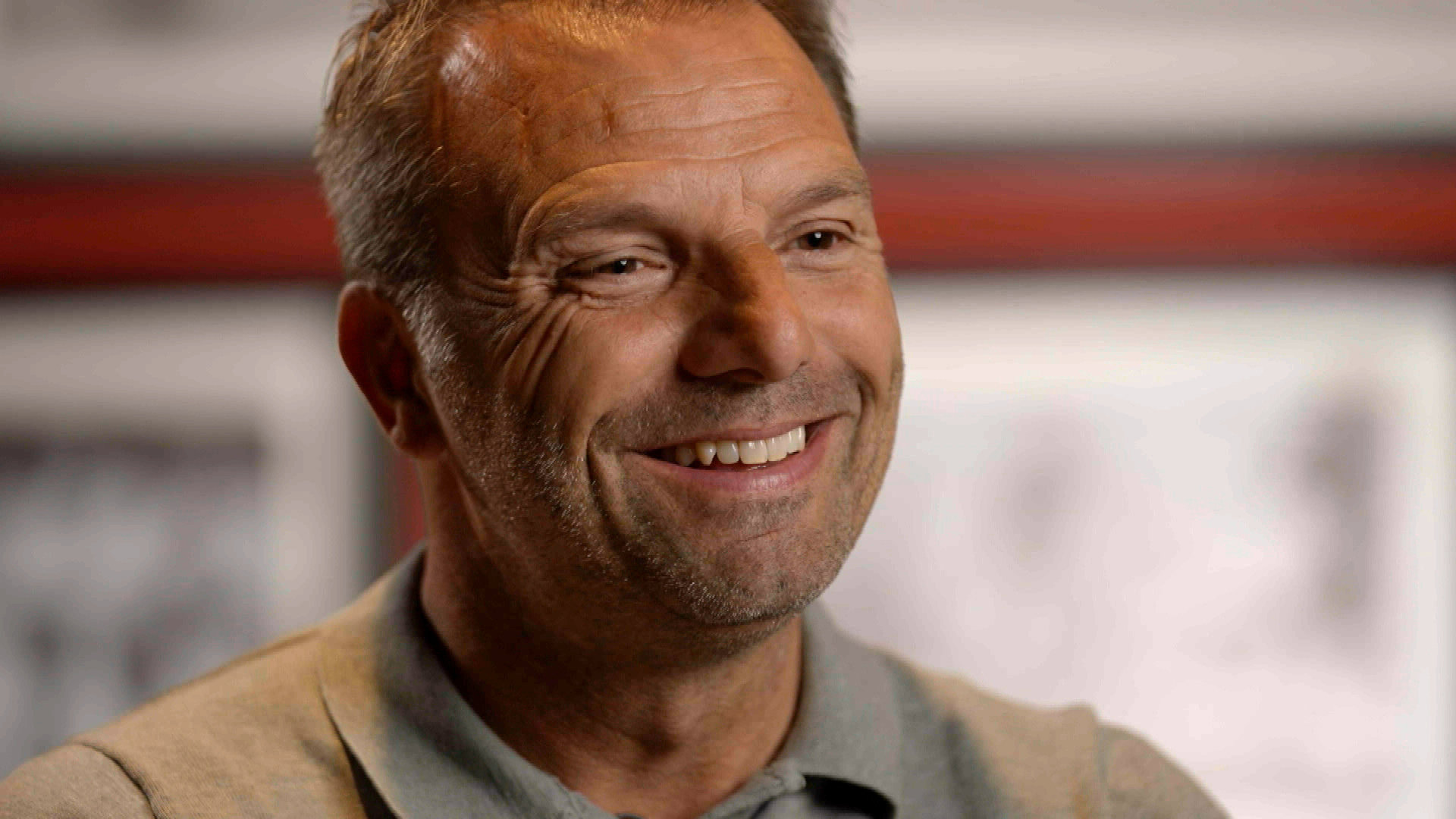Aad de Mos
Just like Steijn, De Mos was born in The Hague. We speak to De Mos over the phone. "I did not expect Steijn's appointment, especially when you look at the other names linked to the club. He was a surprise to me."
De Mos arrived in Amsterdam in the summer of 1980 after a few prosperous years as head coach in amateur football. "Leo Beenhakker became head coach, so the position of head of the youth academy became available. Ajax asked me, and I took the job. So many incredible sixteen and seventeen-year-olds were in the youth academy back then, and they all reached the top. To me, it was a dream to work at Ajax."
De Mos travelled from The Hague to Amsterdam daily with a big smile and pride. "Once I saw those four letters at De Meer, I was happy. I stood on the pitch all day and did some scouting too."
Later, De Mos held positions at Ajax U19, the second team, became assistant coach at Ajax 1, to finally become head coach in 1982. De Mos won three league titles and 1 Dutch Cup in Amsterdam. "I loved working at Ajax and felt at home. I was already on the stand in the seventies. To me, Ajax always played the best type of football, and the club's impact was huge. Everyone wanted to become a coach there, and so did I."
"I don't think it's mandatory for Ajax coaches to come from Amsterdam". De Mos continues about the background of himself and Steijn. "The humour in The Hague and Amsterdam is quite similar, and we are both pretty direct. The most important thing is that Steijn knows what is important within the club. It's expected from him that he knows what to value and what not."
De Mos is clear about the starting phase of Steijn in Amsterdam. "Winning matches. I hope he gets a qualitative squad so the team can start strong because that is the most important. I succeeded Beenhakker at the time, and you need to hit the ground running. After securing a few wins, people will ask you to play attacking and beautiful football, but the most important are the victories."
The Haguenese know each other personally, and De Mos expects Steijn's character to be successful at Ajax. "He is a people manager, communicates openly and honestly, and can make his staff work well. It's all about him remaining calm in the bad times. If he does that, things will be okay. If you want to succeed as head coach at Ajax, you must be demanding. That is an important job: dominate the entire match. Going from 'want' to 'must' will be something new to him, but I expect him to be able to do that with a good team. A mix between young players and new ones, that's how he will build stability and allow him to create a strong squad."
Martin Jol
Just like De Mos, Jol was surprised too by Steijn's appointment in Amsterdam. But he understands why Director of Football Sven Mislintat spoke about 'overperformance' and ended up with Steijn. "At Sparta, at the bottom of the ranking before his arrival, he did a great job and only missed out on European football. If you look at that, why wouldn't Steijn be a good match for Ajax?"
To the question of whether or not the Ajax DNA is a must-have for an Ajax coach, Jol answers quickly and resolutely. "No, many coaches with an Ajax background have failed." Jol names Peter Bosz and Erik ten Hag as counterparts. "They did not have that background and did a great job. To have the Ajax DNA is not a guarantee to success; the past has proven. As long as you win."
Via Tottenham Hotspur and Hamburger SV, Jol arrived at Ajax in the summer of 2009. He never noticed the difference between The Hague and Amsterdam. "No, that never bothered me. I can, besides our backgrounds, see another similarity. I got on board in some sort of a transition because Ajax ended in third place when I got there. That is the same case for Steijn. Some important players have left, and I have to let players go because the squad was too big."
"I enjoyed my time at Ajax a lot. To work with players such as Luis Suárez, Demy de Zeeuw, and Marko Pantelic was amazing. We had a strong squad, reached UEFA Champions League football and scored many goals. Things went well for the biggest part, and then it does not matter that you are from The Hague", Jol jokes.
After a tough start, the former Ajax coach impressed Amsterdam during the 2009/2010 season. The team from Amsterdam ended in second place, behind FC Twente, with an incredible goal difference of 106 scored and twenty conceded goals. "Once I started at Ajax, I did not know what my best team would be. I put Toby Alderweireld and Jan Vertonghen central, Eyong Enoh on the midfield together with Siem de Jong. Pantelic was the point man, so we could fully play in Ajax style."
To focus on the boys from Amsterdam is something Jol did on purpose. Not only because of their background but also because of their many diverse qualities. "These players were used to play in many different positions. This made my first period a lot easier. The first month was hard, and that might happen to Steijn too. But once I got the best team, things started to head in the right direction, and we remained unbeaten. That is the most important thing for Steijn: he needs to find his best eleven."
The coach, who left Ajax after one and a half seasons, expects a good team with Steijn. "He can be clear and give players a face. People think Ajax is chaos right now, but so many good players are still walking around. If Steijn finds his best team, things will work out. He knows what it takes, is positive and has confidence. I think that is a great quality of his. Maurice will make sure Ajax becomes a great team that works perfectly."
Cedric van der Gun
Former player and youth coach of Ajax, Van der Gun, understands why Ajax ended up with Steijn. "His performance at Sparta was great; I understand why they chose him."
Van der Gun was part of the youth academy and the team that became champion in the 2001/2002 season. In his days, many people from Amsterdam worked at the club, while he originated from The Hague. "It was never an issue for me; Ajax is a big club with a huge attractive power. Steijn, who has an ADO Den Haag background, probably did not have to think long about it."
"I think Ajax deliberately chose for Steijn. He doesn't have an Ajax background, but the club chose him. This means they see Steijn as a coach that can work with the Ajax philosophy; attacking football and high pressure", Van der Gun continues. "The most important thing is to perform with good football. This is not always easy because you also depend on quality. As a coach uses all the opportunities within a team, he is doing a good job."
Van der Gun hopes for an excellent start to the season for Steijn and Ajax. "At the beginning, it's all about avoiding conceding goals. It's about winning because the expectations are high, especially after last season. That is part of Ajax and not something he can do much about. He has to show a style of football people know, but that is not always easy."
To conclude, Van der Gun describes his experiences in Amsterdam and states the most crucial thing for Steijn. "Set your own course. There will be moments where things go poorly and where there will be many critiques, which is part of Ajax. If Maurice can hold on to his vision in those moments, as Erik ten Hag did, he will have the most significant chance of succeeding."
